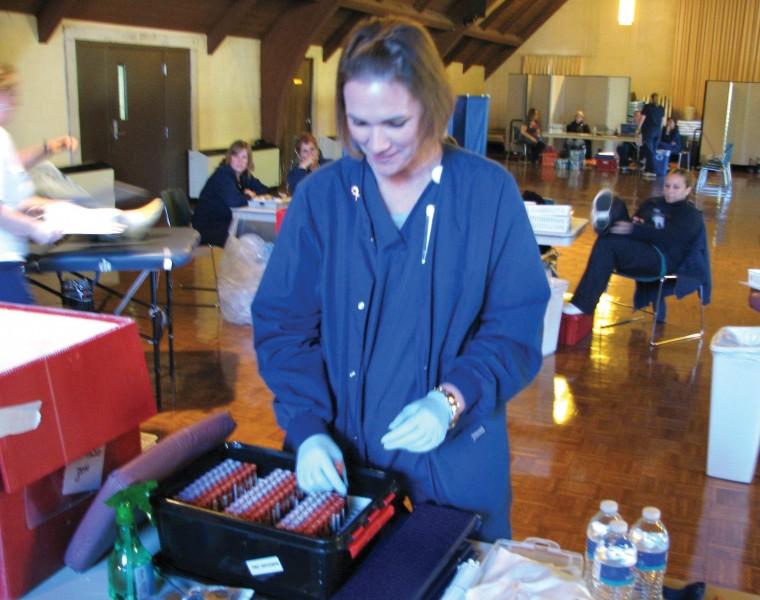Fewer Than Expected Made Their Way to Donate
November 12, 2010
Eighty-seven units of blood were donated in Great Hall last week to participate in the blood drive. The Alpha Phi Omega-hosted event took place on Nov. 2 and 3, but blood donations will give for the many days that follow.
The Blood Center of Iowa visits campus at least two times each year, and students and faculty have a rich history of donating.
“This is something that we (APO) do every semester,” said Christina Weaklend, senior and service chair of APO. “It’s been something that we have done since 2004.”
According to America’s Blood Center website,every two seconds a person somewhere needs a blood transfusion.
“Giving blood saves lives because it goes to all those in need,” junior Sam Gaddis said. “There are a lot of people in the community who can’t give blood, so if you can, it helps a lot.”
The Blood Center of Iowa makes it easy for students by coming to Simpson.
“Students like the convenience of being able to donate blood on campus,” Weaklend said.
Alpha Phi Omega’s blood donation outcome fell short compared to past years, but Weakland still believes the numbers represent a success.
“This year was a little difficult because we had fall break right before the blood drive, so people weren’t necessarily thinking about it,” Weakland said. “But we still turned out pretty well.”
A single pint of blood has the power to save up to three lives, and that fact alone makes an impact to donors.
“The quintessential fact is that you are saving up to three lives with each donation,” sophomore and four-time donor Kimberly Arlaban said. “Seeing the other students donate as well (makes me feel) like our generation is making a difference.”
Only 37 percent of the population in America is eligible to donate blood, which is why first-time donors are always encouraged to stop by.
Director of student health services Rita Audlehelm realizes the nervousness that some first-time donors may experience.
“Be prepared that they are going to put a needle in your arm, and be sure that you follow all of the directions that they give you at the blood center,” Audlehelm said.
Arlabán also gives advice that she practices each time she donates.
“Make sure you’ve eaten at least something in the day and make sure you drink plenty of fluids,” Arlabán said.













